Apple iCloud takes to the skies October 12

As the Friendly Giant used to say: "Look up, look waaaaay up!" Today Apple officially launched iCloud, its provocative synchronization service, during the "Let's talk about iPhone" event. The new service is available to all supported devices running iOS 5 or Mac OS X. Apple also launched iOS 5 today.
Today's launch event is a crucial coming-out party for Tim Cook as new CEO. He replaced Steve Jobs in August. Jobs is legendary for the so-called "reality-distortion field", a seemingly hypnotic effect where Apple's cofounder makes almost any new product announcement magical. Jobs is a master of selling aspiration, of making people, well some, believe that Apple's new this or that will make their lives better. Cook has presented before, but never with so much expectation -- or anticipation -- around him.
Apple iOS 5 launches October 12

Apple's highly-anticipated iOS update is coming your way. Today, during its "Let's talk iPhone" event, the Cupertino, Calif.-based company officially launched the fifth version of the mobile operating system. iOS 5 will be a download available for all currently supported devices, including iPad, iPhone 3GS and 4 and the new smartphone coming later this month. iOS 5 will be available on October 12.
Apple is pinning much on iOS 5, which weaves tightly with iCloud, the new suite of online synchronization services. The company unveiled both in early June, during the Worldwide Developer Conference. Apple claims more than 200 enhancements.
Apple: 6 million Mac OS X Lion downloads
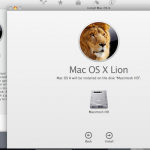
Apple CEO Tim Cook stepped into the huge shoes left by cofounder Steve Jobs, kicking off the all-important "Let's talk about iPhone" event in Cupertino, Calif. Today's launch event is a crucial coming-out party for Cook as new CEO. He replaced Steve Jobs in August.
Cook dropped some big news right away: Since its release two months ago, Mac OS X 10.7, aka Lion has been downloaded 6 million times. However he didn't indicate whether those were separate purchases or not. Buyers are allowed to install the software on multiple Macs in the home, which means more than one download per purchase.
Mozilla: Firefox is still No. 2
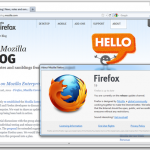
Mozilla is doing some damage control following last week's double-data whammy from Net Applications and StatCounter. Both firms show Chrome gaining usage share on Firefox. StatCounter claims Chrome will unseat Firefox from second place as early as the end of year. I don't believe it, but that's because I trust NetApps stats more, and they're different.
The statement begins: "Firefox demonstrated just how important browsers are but it's important to remember that the reasons for building Web browsers are significantly different from one company to the next". There's a lot of hidden meaning in that one sentence. Google's intentions are pretty clear, as the company builds up a development platform and seeks an anchor for search and ensuring its dominance -- all while integrating its many web services.
Adobe stiffs Apple

Android tablets got what can only be described as their greatest endorsement to date, with stunning support from one of the world's largest and most successful software developers. Today at its MAX 2011 conference, Adobe unveiled the suite of six Touch Apps, which will be available for Android tablets in November. There is no ETA for iPad, except announcement planned for 2012. Considering how much better iPad is selling than Android tablets, Adobe's choice can't be meaningfully described. The developer has chosen the lower-volume competitor instead of the overwhelming leader.
Adobe's decision says much about its increasing rivalry with Apple, the sometimes onerous App Store approval process (particularly for competitors) and relative openness of Android compared to iOS. It's perhaps a slap across Apple's face that the marketing photos on Adobe web pages for Touch Apps show Android tablets. There's nothing subtle about that.
Adobe buys TypeKit

>Watch out Tumblrs and WordPress bloggers, Adobe just announced that it has acquired font-subscription service TypeKit. Is it the end of cheap web fonts?
TypeKit founder and CEO Jeffrey Veen is "thrilled. There honestly is no better place for us to continue building our platform. But perhaps even more significantly, this represents a huge step forward in bringing fonts to the web".
Economic woes push more enterprises to the cloud

Whoa, think enterprises are rushing to the cloud? Think again. It's still early days and slow going. Seventy percent have used software-as-a-service projects for less than three years, says Gartner. That's less time than consumer cloud services like Facebook and Twitter have been around or even Apple's iPhone. One-third of organizations have migration plans in place -- from on-premise to SaaS solutions. Among those enterprises already in the cloud in some way, 95 percent plan to maintain SaaS investments or increase them.
Gartner surveyed 525 organizations from nine countries -- in June and July. That may seem like old data but at the pace enterprises make IT changes, it's current; the survey might as well have been taken yesterday. :) Organizations adopting SaaS cite two major reasons: ease/speed of deployments and lower costs. Global economic crisis is a major factor driving SaaS adoption. Perhaps it's no coincidence that the US stock market collapsed three years ago last week, and the majority of enterprises started deploying SaaS solutions since.
My God, does ANYONE use Internet Explorer?

You might think almost no one after looking at results so far to Betanews poll: "Which is your primary web browser?" Only 9.88 percent of respondents answer some version of Internet Explorer, while 50.01 percent choose Chrome. These results could change dramatically, particularly if a fanboy war erupts or simply thousands of IE-loving Microsoft employees take the poll. But for now, the (currently) 1,812 respondents hugely favor Chrome. I'm shocked.
Betanews readership tends to be highly technical, with tech enthusiasts, IT managers and Windows fans core among them. So I expected early poll results to skew towards Internet Explorer. Instead, Chrome 14, which only released about two weeks ago, locked 35 percent in early polling and has stayed there since. Who are these people using Chrome?
I'm giving up Google Chromebook
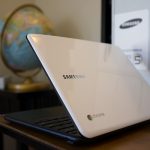
My real journey with Chrome OS started with a family trip on July 31. But some journeys come to an end. As much as I like the Samsung Series 5 Chromebook, which I have used continuously since July 31, we must part ways. In a few days I will return to running Windows 7, which is another journey and story to go with it that will get brief explanation here. That is really topic for another post.
My two-month journey to the cloud can offer lessons to Google, which has much work to do yet before Chrome OS is really ready for the masses -- that is unless the problems I observed are specific to my Chromebook (which I highly doubt). The browser-based, Linux OS is still an early-adopter product -- the bleeding edge that cuts quick and sometimes deep. I'm not convinced even Chrome OS should have a future at all. But I can see where Google is going with this thing, particularly following last month's release of Chrome 14 with native code. I'd rather see one Google operating system -- Ice Cream Sandwich or successor running Chrome.
Sony announces Fall VAIO refresh

It must be Monday in Japan. Why else would Sony announce new laptops on a Sunday morning here? Today, the electronics company revealed autumn upgrades to its VAIO S & F series laptops and L desktop. The new systems are available immediately.
VAIO S series laptops come with 13.3-inch or 15.5-inch displays, with prices starting at $999. These models are thin, less than 1-inch thick, but nowhere as petite as Sony Z series notebooks. F series laptops are thicker, heavier and cheaper to buy. Prices start at $719, $749 and $799 for models with 14-inch, 15.5-inch and 17-inch displays, respectively.
Google Chrome usage rises as Firefox and Internet Explorer fall
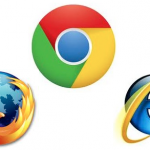
Internet Explorer lost market share (again) in September, with Google Chrome collecting the difference. Meanwhile, Firefox share is stagnant, as Chrome pushes ever closer to the No. 2 spot in global browser usage share.
It's first day of the month, and that means new browser share data from Net Applications. Internet Explorer usage share is 54.39 percent, down from 60.35 percent in November 2010. Firefox fell to 22.48 percent from 23.52 percent during the same time period. September marked the fourth consecutive month of decline for Firefox. Meanwhile, Chrome usage share rose to 16.2 percent from 9.57 from November to September, consecutively gaining share for all 11 months.
Is that Google Chrome or malware on your PC?

Is Google Chrome suddenly not working for you? If Microsoft Security Essentials is installed on your PC, that's likely explanation. It seems that, well, ah, that the security software is misidentifying the browser as malware. Oh, Microsoft you wish! With Chrome market share going up, surely someone at Microsoft sees the Google browser as an infestation to be purged.
But ribbing aside, it's just one of those glitches that sometimes occurs with software. But surely there's a script here somewhere for how Microsoft would like to remove unwelcome software on your Windows PC. Gone it is. If you're affected, it's possible Security Essentials has identified Chrome as "PWS:Win32/Zbot" and removed it from your PC. Quick! Where's the Internet Explorer 6 installation disc? :)
Will you buy Amazon Kindle Fire?

The hottest tablet to debut in months has pretty puny specs. There's no camera, no Bluetooth, no sensors for orientation and no 3G radio. The device runs Android 2.1, but it's customized such your existing apps probably won't run -- and Amazon has developed its own web browser, too. But the $199 price is compelling, and seemingly everyone is talking about it. So I have to ask: Has Kindle Fire set your wallet ablaze? Amazon is taking preorders for November 15 release. As usual you can answer in comments or email joe at betanews dot com. Then there is the poll below; please take it.
I must admit to having a hearty laugh at the news coverage. For weeks, as Amazon tablet rumors mounted, bloggers and journalists posted story after story asserting that the iPad killer was coming -- like some new-found messiah they worshiped sight unseen who would vanquish the Jesus Pad from Apple cultdom. Over the last two days, many of those same sites posted about how "Kindle Fire is no iPad killer". I laughed my ass off. Seriously, there really needs to be some kind rumor-control meter for the Internet.
Is $199 the right price for tablets?

Preliminary results are in from Betanews poll: "What price would be low enough for you to buy a media tablet?" For the majority of respondents (30 percent), $199 is the price. Only about 5 percent of you would spend more than $299.
Not that Apple seems all that perplexed about selling tablets ranging from $499 to $829. But perhaps it should be now that Amazon has lowered the price bar to $199 with Kindle Fire.
Finally you can Skype video on Galaxy Tab 10.1 and XOOM
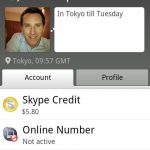
I must have been asleep at the wheel yesterday, because somehow this reporter missed the big Skype for Android upgrade. What? You missed it, too?
Well, hells bells. Version 2.5 adds video-calling support for 14 more devices -- and, finally, some big-brand tablets: Motorola XOOM and Samsung Galaxy Tab 10.1. About friggin' time!
Joe's Bio
Joe Wilcox is BetaNews executive editor. His motto: Change the rules. Joe is a former CNET News staff writer, JupiterResearch senior analyst, and Ziff Davis Enterprise Microsoft Watch editor.
Ethics Statement© 1998-2025 BetaNews, Inc. All Rights Reserved. Privacy Policy - Cookie Policy.
